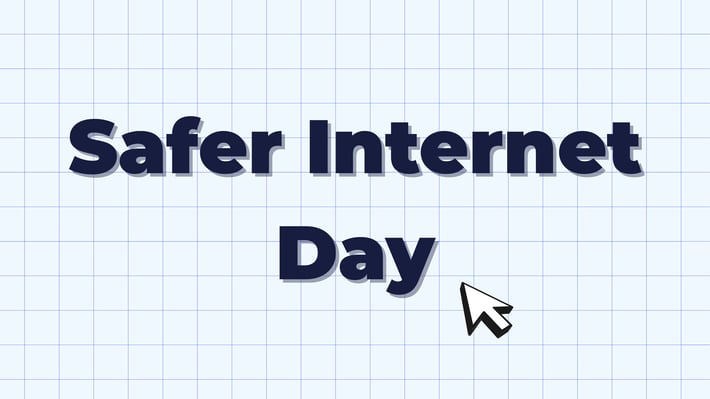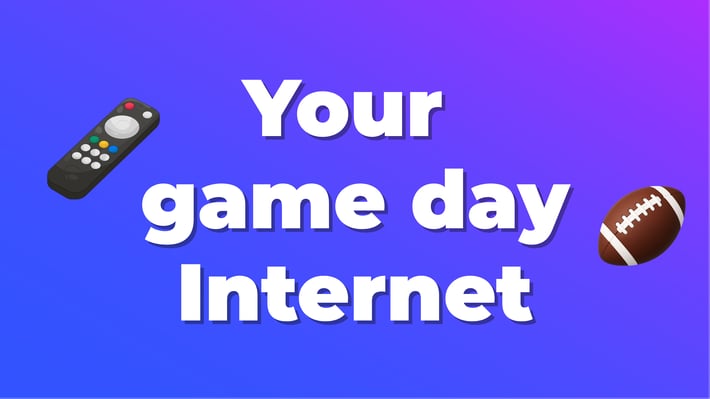.jpg?width=1200&name=23-041-NatlJanuary-FebruaryRepurposedBlogs-BandwidthCaps%20(1).jpg)
The truth about bandwidth caps and data limits
Curious about which internet providers set data caps on plans? Find out how to enjoy unlimited internet without worrying about data limits or extra fees.
If you're on the hunt for a new internet service provider, it's important to remember that fast speed isn't the only factor to consider anymore. You also need to be aware of data caps, data limits, or bandwidth caps. These are limits that your internet service provider (ISP) puts on your internet usage, and they can be a real hassle and a hefty expense.
What are internet bandwidth caps?
Internet data caps are the limits that your internet provider sets on how much you can use the internet each month. So whether you're binge-watching Netflix or just scrolling through social media, everything you do on the internet uses up data. And if you use too much of it, you might end up hitting your limit.
These data caps are also known as ”fair use policies,” “monthly usage allowances,” or “bandwidth caps.” However, the term “bandwidth cap” is a bit misleading because most internet providers won't slow down your internet speed if you go over your limit. What usually happens is that your provider will give you a warning when you're getting close to your limit, and if you go over, you'll receive overage charges on your next bill.
Ting Internet doesn't believe in putting limits on the internet—it’s quite the opposite. Admittedly, it helps that we're building fiber networks with the future in mind, not protecting coax and copper networks built in the pre-internet days.
How much data do ISPs usually allow?
Some of the biggest internet providers have data caps on their plans. ISPs like Xfinity cap their data usage at 1.2 TB on most of their plans. When users exceed that 1.2 TB cap, the ISP will let it slide with two “courtesy months.” Next time, it's $10 per 50 GB over the cap up to a $100 monthly max. AT&T caps data at 1 TB, but you can get an unlimited data usage add-on for $30 per month.
Caps have had a chilling effect on internet use overall but, ironically, no demonstrable impact on network congestion. Caps are much more effective as a juicy profit center than a network load-balancing mechanism. This is simply a price hike. Revenue threatened by people upgrading from cable to streaming TV? There’s a cap for that.
The Xfinity FAQ goes to great pains to make the prospect of using more than 1.2 TB seem difficult, even laughable. According to OpenVault’s research, 9.4 percent of US customers with unlimited data used more than 1 TB a month, and 1.2 percent exceeded 2 TB. Without caps, 8.3 percent exceeded 1 TB and 0.9 percent exceeded 2 TB. Internet users have been conditioned to expect caps—to think of the internet as a scarce resource. That shouldn’t be. And it's important for internet providers to understand the diverse needs of their customers and offer plans that work for everyone regardless of their internet usage.
Who’s affected by bandwidth caps?
Some internet providers are limiting data usage and blaming it on so-called “bandwidth hogs.” They try to justify it by stating that a small number of users are using too much data. But the truth is, those “high-volume users” could be anyone, really.
How about a teenager who spends hours gaming or a family that's working and studying from home? It could even be a psychologist who has shifted to remote work and is now seeing patients online. And let's not forget about seniors with health care needs who rely on the internet for virtual consultations and appointments. The point is that these bandwidth caps affect all kinds of people, not just a select few "bandwidth hogs."
How much access is enough?
We could debate whether 1.2 TB in a month is a lot or a little, whether or not it's “enough.” The point is that we don’t think people should have to think about how much they’re using the internet. The internet is not a finite resource.
Limits are artificial and are just another tool used to shape behavior. There’s no nobility in using the internet less or in demanding less of your internet connection. Penalties for using the internet are not about fairness, no matter how much ISPs may try to position them as such.
As people rely on the internet more and more for education, work and play, we should be talking about how we can remove artificial limitations on the ways people use the internet. Not on how much limitation is right. Not when is an appropriate time to re-introduce limits.
Energy spent on positioning and justifying limitations is energy that could be better spent elsewhere. The collective we—as in Internet Service Providers—have a responsibility to meet the already underserved and ever-growing need for faster, more reliable internet access in America. Let's talk about that instead.
Go unlimited with Ting Internet
Our customers can use as much data as they want without worrying about hitting a cap and incurring additional charges. You get the freedom to use the internet however you want, whether it's streaming movies, playing online games or working from home. This can be especially important for households with multiple users or those who rely on the internet for work or school.
See if Ting is available in your area for you to enjoy fast and reliable internet without the worry of hitting a data cap or going over your monthly limit.
.png?length=710&name=Blog%20banners%20(27).png)

